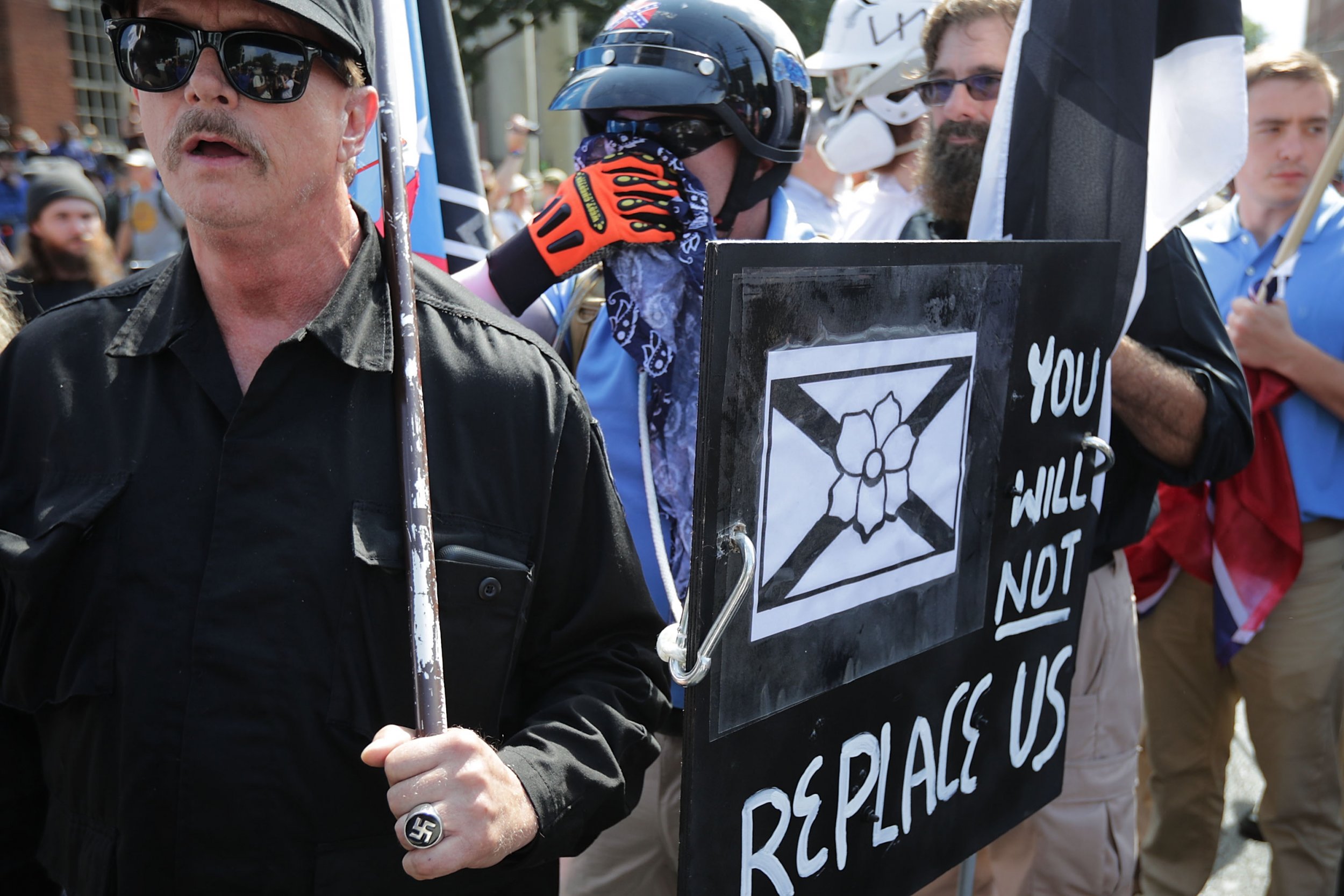
Very few Americans will say outright that they support neo-Nazism, white nationalism or the so-called alt right. But that doesn't mean they don't express support for some of the same racially-charged ideas and attitudes that such extremists espouse. A new poll conducted by Reuters and Ipsos with the University of Virginia Center for Politics in the aftermath of the Charlottesville rallies found what it called "troubling racial attitudes."
The poll was conducted from August 21 to September 5, in the weeks following a "Unite the Right" rally, white supremacist marches and counter-protests on the University of Virginia campus and in downtown Charlottesville. Clashes broke out, and the scene took an even more violent turn when a car slammed into counter-protesters, killing Heather Heyer and injuring at least 19 others. Most questions in the poll were asked of a large group of 5,360 respondents.
Only six percent of respondents said they strongly or somewhat supported the alt-right, while eight percent said the same of white nationalism and just four percent of neo-Nazism. In the case of the alt-right and white nationalism, a staggering one-fifth said they neither support nor oppose the groups. As President Donald Trump found out when he failed to unequivocally condemn the same groups, middling responses can be interpreted as support.
"Let's remember, there are nearly 250 million adults in the United States, so even small percentages likely represent the beliefs of many millions of Americans," Larry J. Sabato, director of the University of Virginia Center of Politics, is quoted as saying.
About 70 percent of respondents strongly agreed that people of different races should be "free to live wherever they choose" and that "all races are equal," and 89 percent agreed that all races should be treated equally. At the same time, 31 percent of respondents said they strongly or somewhat agreed that the country needs to "protect and preserve its White European heritage," while 34 percent strongly or somewhat disagreed and 29 percent said they neither agreed nor disagreed. Nearly a third of respondents failed to express support of interracial marriage—with 16 percent agreeing outright that "marriage should only be allowed between two people of the same race," 14 percent neither agreeing nor disagreeing and four percent saying they didn't know.
The poll also revealed disparities in which groups Americans believe are "under attack." More than a third—39 percent—of respondents strongly or somewhat agreed with the statement that "white people are currently under attack in this country." There were significant differences in responses depending on race and political affiliation—29 percent of white respondents disagreed with the statement compared to 54 percent of non-white respondents, while 21 percent of Democrats agreed compared to 63 percent of Republicans. Conversely, 55 percent of respondents strongly or somewhat agreed with the statement that "racial minorities are currently under attack in this country," with just 13 percent of racial minorities disagreeing and 27 percent of white respondents disagreeing.
Only 26 percent of white respondents expressed support for the Black Lives Matter movement compared to 33 percent of Hispanic respondents and 62 percent of African-American respondents. More than half (52 percent) of Democrats expressed support while 62 percent of Republicans opposed BLM.
More than half of African-American respondents were in favor of removing all Confederate monuments while two-thirds of white respondents wanted them to remain in place. A vast majority of Republicans—81 percent—said they wanted Confederate monuments to stay in place.
The poll revealed a high level of indifference—as marked by those who gave "neither agree nor disagree" or "neither support nor oppose" answers. But that, too, was a troubling outcome. An analysis by the pollsters found that those who gave indifferent answers were "more likely to have views that leaned more toward intolerance than away from it."
They "are far less likely to condemn statements against interracial marriage and in favor of preserving white heritage," Ipsos pollster Julia Clark is quoted as saying. In addition, they "are notably less likely than other respondents to feel all races should be treated equally or that minorities are under attack," she said. "In both cases, and others, this makes their viewpoints more congruous with extremist, anti-equality views than more progressive views."
In other words, many Americans have more in common with the alt-right, white nationalists and neo-Nazis than they might think.
Uncommon Knowledge
Newsweek is committed to challenging conventional wisdom and finding connections in the search for common ground.
Newsweek is committed to challenging conventional wisdom and finding connections in the search for common ground.
About the writer
Stav is a general assignment staff writer for Newsweek. She received the Newswomen's Club of New York's 2016 Martha Coman Front ... Read more
To read how Newsweek uses AI as a newsroom tool, Click here.








